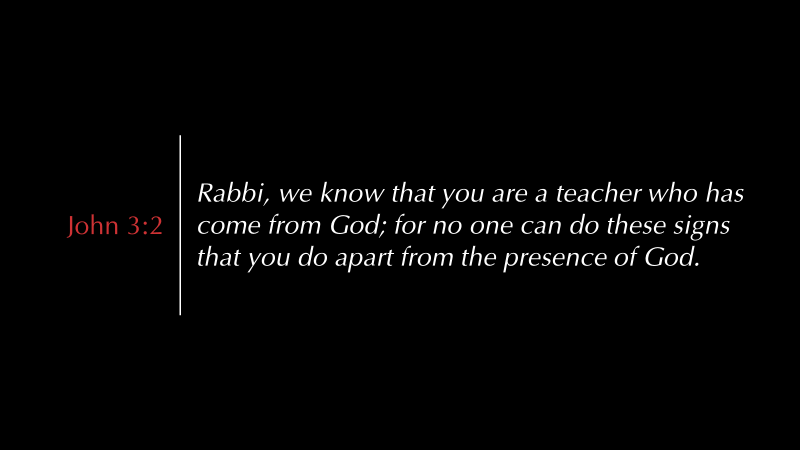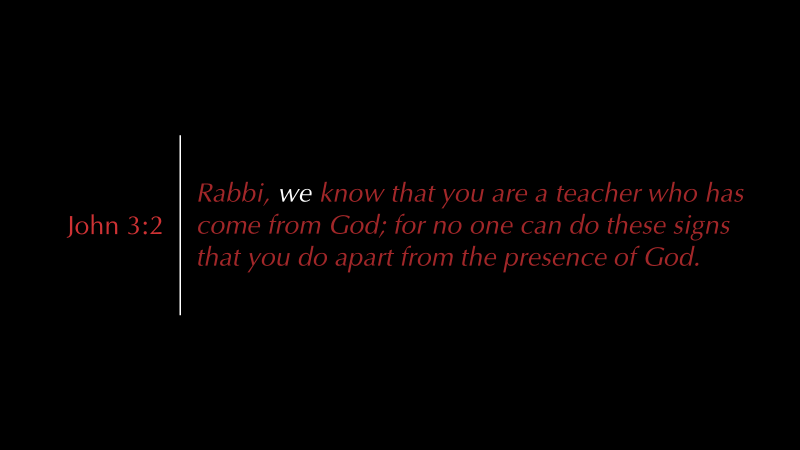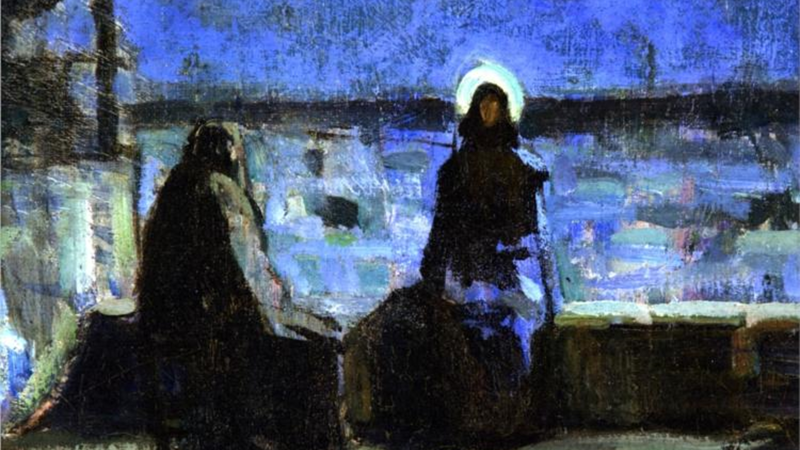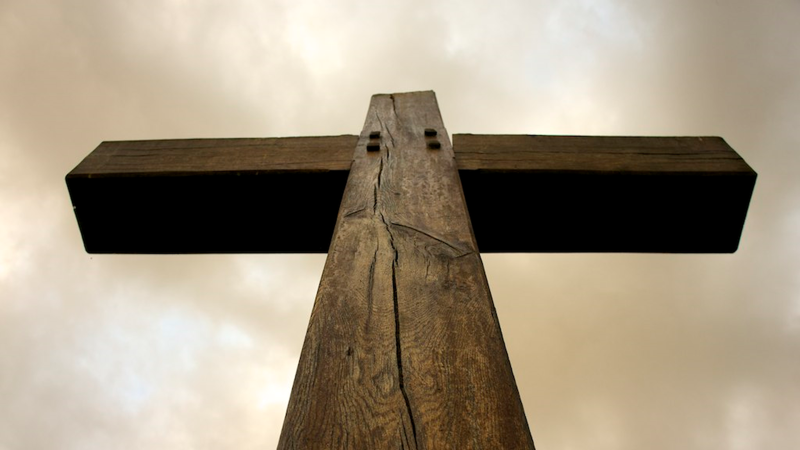Scott AndersonGenesis 12:1-4 † Psalm 121 † Romans 4:1-5, 13-17† John 3:1-17 Have you ever wondered why Nicodemus comes to Jesus at night? What do you suppose could be possible reasons for this? It is a striking detail to include, especially given what he says next: So Nicodemus knows that what is happening has everything to do with the presence and the power of God. It rings with truth. He knows it. Yet he appears to be sneaking around, keeping his identity protected, proceeding with caution, and maybe even a little fear. And did you notice, even though its just him, he says, “We” We know. We Rabbis, we teachers, we authorities know that you are a teacher speaking truth, bearing an authority that is not your own, but filled with the presence of God and all the possibility that suggests. We know that God loves the world. We know God is a God of generosity and life, and this should be nothing but good news. So why at night. Why is he hiding? Why would this meeting be a problem, do you suppose? How is this not good news for Nicodemus and his fellow religious teachers? Tali Hairston, a pastor in the Seattle Presbytery, has taken a new slant on an old saw that makes sense for me in the context of this story. He looks to that often used imagery that comes from a consideration of the two pieces of lumber that make up the vertical axis and the horizontal axis of the cross. I suspect you’ve heard others envision these two directions as the two directions of relationship we have as Christians—that vertical, personal, spiritual relationship of reconciliation with God, the burning in our hearts, and the horizontal relationship with one another. Loving God, and loving neighbor, as it were. This is and has been a lovely, and instructive idea, of course. But here’s where Pastor Tali catches me. You may remember that many of the gospels take note of the threat that Jesus’ birth and the Magi’s search for this new king has on Herod. I suspect it is not unlike the feeling of threat that brings Nicodemus to Jesus at night. Both the political and the religious powers of the day are alarmed by the presence of this one who has come from God and does signs that indicate the presence of God. What do you suppose creates that alarm? Pastor Tali suggests that it isn’t the vertical relationship. Herod and Nicodemus and his cohort are just fine with that one-on-one relationship with God, of reconciliation with God. The problem comes with the horizontal relationships of reconciliation and mutuality and transformation. For these relationships speak to new life and to justice and to peace. Herod was not afraid of the vertical reconciliation between people and God. But Herod was deathly afraid of horizontal reconciliation between people and other people. He knew they could change everything. And consider who Jesus made his relationships with. He took disciples of a Jewish faith into Gentile territory, exposing them to outsiders and strangers. He tells stories about Samaritans, good Samaritans—who were not just strangers, but enemies—who become models of kindness and even faith and he took his disciples to them as well. He speaks and learns from women and takes time among the sick and he touched the untouchable. He even welcomes those who come in the dark of night because they may be afraid of acting in the light. Herod and Nicodemus are not afraid of the vertical reconciliation between people and God. But it scares the devil out of them when they begin to see new relationships form that have the power to overcome evil and the structures that hold it. Which makes us wonder, who are we relating to that scares the devil? In just a few minutes we are going to baptize the daughter of two women who not many years ago would have been considered outside the bounds of the church’s love. We are going to make the strong claim that this child and these women belong to God and we, as the church, to them. I suppose in some settings this may still be an open question, but not here.
We instead understand that for us to do this is to turn from the ways of sin. We renounce evil and its power in the world. Beloved, of God, if we are doing this right, we should expect it to scare the devil out of Herod and his kind and maybe even Nicodemus and his cronies in the church today. And we instead choose to embrace that always expanding, always surprising, always unsettling love and grace of God we know in Jesus. You see, there is power in this water and its message of inclusion and incorporation and love. In it we find life-giving promises for Ella. And we make a huge claim for the power of God to overcome all those barriers to peace and to justice that come when we give ourselves to those Jesus gave himself to. We not only embrace, but we continue to form and forge new relationships and coalitions and partnerships between ourselves and the most unexpected of allies as we obey his word and show his love. Who are we relating to that scares the devil? And to whom is God calling us that we have yet to reach out to? Thanks be to God for the model we have set before us, and for the affirmation we now move to as we make yet another new relationship.
0 Comments
Leave a Reply. |
St. Andrew SermonsCategories
All
|





 RSS Feed
RSS Feed